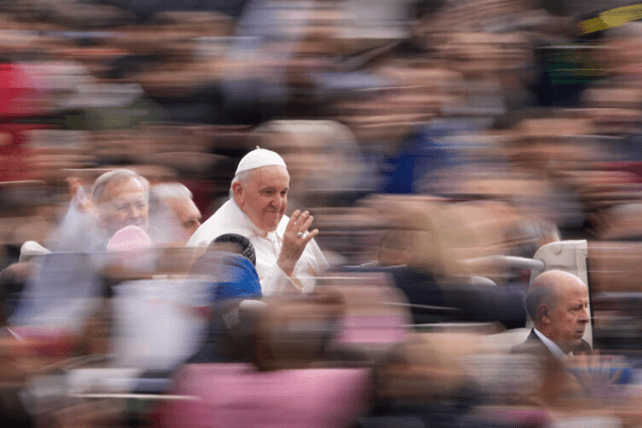VATICAN CITY (RNS) — When Pope Francis announced Sunday (July 9) that he would be making 21 new cardinals, Vatican observers agreed that the aging pontiff, who has named more than two-thirds of the men who will vote for his successor, was aiming to solidify his legacy. But history shows that the College of Cardinals has its own mind when it comes to voting, a fact Francis, elected by three decades’ worth of conservative popes’ appointees, likely appreciates.
Instead, the new crop of cardinals may say more about Francis’ focus on a college built for reconciliation and overcoming divisions within the church.
These qualities will be crucial to the success of the summit of Catholic bishops and lay people that begins Oct. 4 in Rome, meant to address some of the most divisive issues in the church and in broader society: the inclusion of women and LGBTQ people. The consistory, the ceremony when the new cardinals will be made, will take place Sept. 30, only days before.
“Let’s be honest, we live in a very polarized society. It’s a difficult world today. People are separated by ideologies,” said Archbishop Christophe Pierre, the Vatican’s representative in the United States and one of those who will be made a cardinal, in an interview Wednesday. “The mission of the church is especially to live in this society which is polarized and divided, but not to repeat the polarization but cure this society,” he said.
Rather than merely strengthening Francis’ hold on the church, Pierre said, he views his mission as a cardinal will be to hold the tension in the deeply divided U.S. church.
Certainly some of Francis’ new appointments are clearly designed to give weight to other recent appointments in the Vatican hierarchy. His decision to give a red hat to Archbishop Víctor Manuel Fernández, a longtime friend and fellow Argentine recently appointed to oversee the Dicastery for the Doctrine of the Faith, suggests that the pope wanted to further emphasize papal approval for Fernandez’s leadership.
The same can be said for the elevation of American-born Archbishop Robert Prevost, who heads the Vatican department overseeing bishops. The red hat for Archbishop José Cobo Cano, recently tapped to lead the Archdiocese of Madrid, is an important bit of housekeeping, giving Spanish-speaking cardinals a leading voice at a future conclave.
But there is an easily traceable thread of unity running through the resumes of many of the cardinals-to-be.
“For us in Southern Africa the church has a very important role to play in terms of healing relations,” Archbishop Stephen Brislin of Cape Town, South Africa, said in a Zoom Wednesday. Brislin said he views his appointment as a message for reconciliation born from the experiences of segregation and racism during his country’s long era of apartheid.
Brislin, formally at the head of the South African Bishops’ Conference, also pushed back against the idea that the next consistory is merely aimed at electing a like-minded successor to Pope Francis.
“It’s not all about looking out for his legacy,” Brislin said, adding that he believes the appointments are aimed at promoting a church that is close to the people. Unity can be achieved even through diversity, he said, underlining that “a lot can be done at the local level, without breaking obviously from the universal church.”
Diversity has been a theme of Francis’ cardinal appointments; he’s made 113 cardinals from 64 countries, including some that have never been home to a cardinal. He extended this record with the first cardinal from the Muslim-majority country of Malaysia, Bishop Sebastian Francis of Penang. Archbishop Stephen Ameyu Martin Mulla will become the first cardinal in the embattled African nation of South Sudan.

